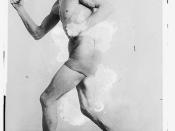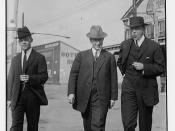There are a myriad of qualities that form effective leadership. It may never be agreed upon whether leadership arises from a set of innate characteristics ("leaders are born") or, rather, from observable actions ("leaders are made"). Some basic leadership qualities, however, seem almost universal, no matter the leader or type of group they head: Good communication skills, the ability to constructively deal with a variety of personalities, and the mental toughness to shoulder responsibility and weather criticism. Certain personality traits are also required, such as, having a sense of humor, trustworthiness and general good people skills. The traits of a good leader, and the common thread in any leadership model, is that the traits of a leader are the product of one of three broad bases of knowledge: First, knowledge of the group; next, knowledge of the goals of the group; and finally, and perhaps the most important, the leader's knowledge of his or her self.
"Leaders must have knowledge of the group's members (Happy Atom, 2003). There's no way a leader can get a team to work together without first learning how to work with each person as an individual. Leadership is a one-on-one sport". In any group, all of the members have different personality traits, job skills, and opinions that they bring to the table. While it is the responsibility of each team member to contribute to the common goals of the team, it is the leader's task to assess the strengths, and weaknesses of each member to see how they would best contribute to the goals at hand. An effective group leader will take time to learn about each individual, in an effort to maximize each member's contribution to the group. Being an active contributor to the group's goals allows each member to experience a genuine sense...


